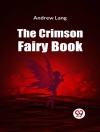In ‘The Man Who Was Thursday: A Nightmare, ‘ G. K. Chesterton masterfully blends elements of fantasy, absurdity, and political philosophy to craft a narrative that oscillates between a gritty London and the surreal landscape of the human psyche. The story follows Gabriel Syme, a poet turned detective, who infiltrates a clandestine anarchist council only to uncover layers of deception and the paradox of identity. Chesterton’s trademark wit and vivid prose frame existential inquiries within a thrilling chase infused with humor and paradox, contributing to a rich literary context that juxtaposes the Enlightenment’s rationalism with the irrational fears of modernity. Chesterton, a staunch defender of Christian orthodoxy and a well-versed literary critic, was deeply engaged with the political upheavals of his time. His experiences with anarchism and radical thought during the early 20th century imbue this work with a sense of urgency and introspection. This exploration of faith, reason, and rebellion not only reflects his views on society but also demonstrates his belief in the importance of recognizing moral absolutes amid chaos. Recommended for both enthusiasts of philosophical literature and fans of intricate storytelling, ‘The Man Who Was Thursday’ offers a profound examination of the nature of existence. Its rich allegory encourages readers to question the certainties of their own beliefs and the societal norms they inhabit, making this novel an enduring masterpiece worthy of re-examination.
Sobre o autor
Gilbert Keith Chesterton (1874–1936) was a prolific English writer, poet, philosopher, dramatist, journalist, orator, lay theologian, biographer, and literary and art critic. Chesterton is often referred to as the ‘prince of paradox’ for his ability to turn a phrase with wit and cleverness. An imposing figure standing over six feet tall and weighing in excess of 300 pounds, his physical stature matched the breadth of his literary output. He wrote around 80 books, several hundred poems, some 200 short stories, 4000 essays, and several plays. His novel, ‘The Man Who Was Thursday: A Nightmare’, stands out as a metaphysical thriller and a quintessential example of his narrative inventiveness and philosophical profundity. The book is an allegorical tale that combines elements of adventure, detective fiction, and satire, exploring themes of order and chaos, and the testing of faith. Chesterton’s prose is characterized by balance and paradox, a style that influences his insightful observations on life and culture. His body of work, which includes other notable books such as ‘Orthodoxy’ and ‘The Everlasting Man’, has become a cornerstone of Christian apologetics. Recognized by his contemporaries and critics, Chesterton’s influence stretches from the literary sphere into religious and philosophical realms, solidifying his legacy as a towering figure in early 20th-century literature.












